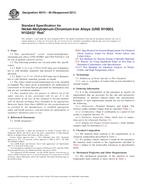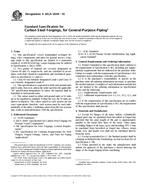1.1 This practice is intended to provide information that will permit design of a rational cleaning procedure that can be used with a glass that is somewhat soluble in many aqueous chemical solutions. Typically, this type of glass is used in applications such as optical ware, glass-to-metal seals, low dielectric loss products, glass fibers, infrared transmitting products, and products resistant to metallic vapors.
1.2 In most cases, this type of glass contains high concentrations of oxides that tend to react with a number of aqueous chemicals. Such oxides include B2 O3 , Al2 O3 , R2 , RO, La2 O3 , ZnO, PbO, P2 O5 , and Fe2 O3 . The more conventional high-silica glasses are usually more chemically resistant, but the cleaning principles outlined here also apply to them.
1.3 This standard does not purport to address all of the safety concerns, if any, associated with its use. It is the responsibility of the user of this standard to establish appropriate safety and health practices and determine the applicability of regulatory limitations prior to use. Specific hazard statements are given in Section 4 and Table 1.
Product Details
- Published:
- 01/01/1997
- Number of Pages:
- 6
- File Size:
- 1 file , 66 KB


